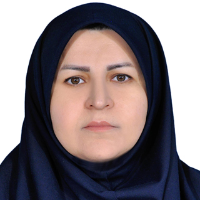Urban self-organization in practice: identifying a model for understanding collective action in neighborhoods of Sabzevar City
Studies show that the concept of urban self-organization can pave the way for researchers to achieve actual citizen participation. Despite the importance of this issue, there is a significant cognitive gap in this field in Iran. Due to the contextual nature of urban self-organization, to use this concept in the development of the country's neighborhoods, one must first understand the specific concepts and elements of this phenomenon inside. This study aims to identify the concepts and categories of urban self-organization in the neighborhoods of Sabzevar and investigate the relationship between these concepts and categories.
the research uses the multi grounded theory. The existing theoretical texts were reviewed during a round-trip process, and 18 activists of urban self-organization processes in Sabzevar, officials, and experts on urban issues were interviewed. A combination of purposeful judgment methods and snowballs, non-probabilistic methods, has been used to select the statistical population. Adequacy of sampling has also been achieved by the theoretical sampling method.
During the research process, 423 initial codes, 68 concepts, and 22 categories were identified. Among the obtained categories, "constant energy flow" was introduced as a core category. "motivating factors", "Structural forces and capacities of the local community", "Transparency and accessibility of information", "Socio-psychological characteristics of key people", "Spatial-social proximity" and "Determination of managers" "Were identified as causal conditions. Strategies resulting from a core category in the model include "negotiations and agreements", "multi-sectoral funding methods", "creating common interests" and "collective learning". On the one hand, in this model, the categories of "technical capacity, knowledge, and awareness of citizens", "capacity of local scientific societies", "capacities and physical assets of the neighborhood", "recognition of self-organized groups" and "independence of Self-organized groups" is introduced as the context conditions. On the other hand, "institutional rules and forces" are the intervening conditions in the mentioned model.
The flow of communication, interactions, and exchange of ideas, experiences, and information among the various actors of urban self-organization processes, including citizens, key individuals, and Responsible official bodies, form the basis of urban self-organization processes. Therefore, efforts to establish and increase this flow can provide the necessary conditions for forming urban self-organization processes. According to the research findings, structural and legal reforms in urban management processes are inevitable to achieve real and self-organized participation. Changes to multi-level management systems, the development of flexible rules that are adaptable to local conditions, and the elimination of cumbersome administrative procedures are among the most essential measures that should be considered in this regard. Finally, the proposed model promotes functional, semantic, and environmental dimensions and brings "economic achievements" and "social and behavior-oriented interventions".
- حق عضویت دریافتی صرف حمایت از نشریات عضو و نگهداری، تکمیل و توسعه مگیران میشود.
- پرداخت حق اشتراک و دانلود مقالات اجازه بازنشر آن در سایر رسانههای چاپی و دیجیتال را به کاربر نمیدهد.




